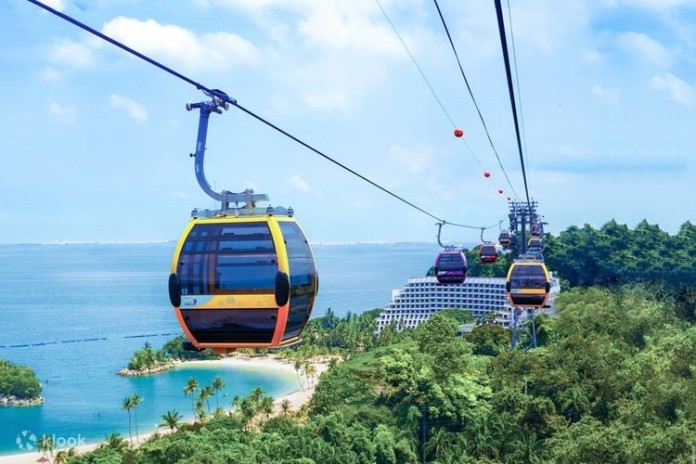Former Mayor of the Freetown Municipality, Yvonne Aki-Sawyerr, has recently engaged international Consultants, Markus Hagspiel, a ropeway/Cable Car expert, Teferra Sileshi of GFA Heat and members of the American Institute of Architects to properly strategize and plan well ahead of commissioning the first Cable Car in the metropolis.
The main aim of launching the first Cable Car is geared towards enhancing swift travelling within Freetown, creating an avenue for easy accessibility as well as making the city visibly attractive to investors, tourists and even residents.
The Cable Car Project feasibility study dates back to June 2022 and should end in March 2024.
This medium was reliably informed that the consultants, experts and stakeholders have ensured that every aspect of the project is considered with the utmost care taken to make sure such a development in Freetown is well implemented and becomes a reality.
In a snap chat with the former FCC Mayor, Yvonne Aki-Sawyerr, she disclosed that the Cable Car Project is a key component of her vision to transform Freetown further maintaining how it is geared towards reducing traffic congestion and air pollution that poses serious health hazards.
She expressed the view that a modern transport option, such as the cable car system, will contribute immensely in generating revenue for the city and improve the daily lives of residents in Freetown.
It is worthy to note that the Cable Car initiative for Freetown emanated from the C40 cities resolution to eradicate climate change and reduce carbon emission.
Carbon emissions are generated from the burning of fossils fuel. An example is the smoke that comes out of exhaust pipes.
Also, noteworthy is that the Cable Car will be powered by solar energy, an alternative energy with the objective of reducing carbon emission.
As former Vice Chair of the C40 Innovative cities, Yvonne Aki-Sawyerr, met with the former Mayor of Medellin in November 2019 in Durban, South Africa, which was the first city in the world to initiate the cable car as a form of mass transport in 2014. Later in November 2022, members of the Mayor’s Delivery Unit working on the Cable Car project visited Medellin for a study visit.
Since the 2019 conversation with the former Mayor of Medellin, the Freetown Cable Car Project has moved from an idea to a firm concept.
Because of her zest to see that Freetown is being transformed she was able to apply for an eight hundred thousand dollars($800,000)grant to conduct a full-feasibility study for the introduction of the cable car in Freetown with the C40 cities finance facility and GIZ acting as the implementing partner and whose mandate is to structure the finances.
The cable car is a ropeway technology to be used for the very first time in Sierra Leone. This technology is gradually increasing in cities around the world and serves as a supplement to conventional means of transportation.
In general, the cable car technology can serve as an inexpensive, quickly realizable and reliable subsystem of local public passenger transport.
It offers a special travel experience in urban areas, as it allows people to glide above the city and also, an extremely robust service-proven experience gained in operations on mountains etc.This is because it is totally independent of existing road and rail infrastructures.
Studies by renowned institutes confirm that cable car technology has an exceptional good Life Cycle Assessment (LCA) compared to conventional means of transportation, with low operating speeds but no waiting times. Urban cable cars operate fully automated and the maintenance requirements are low.
According to experts it can take up to 6,000 people per hour and on a constant speed from point A to Point B.
The visiting consultants assured Freetonians that the cable car is a safe mode of transportation and very good solution to the many challenges faced in the city.
The experts advised to do regular checks either monthly or daily to avoid mechanical breakdown but promised to do a lot of training for locals to ensure the sustainability of the technology.
Many Freetonians expressed delight over this new means of transportation and promised to support Yvonne Aki-Sawyerr in order to ensure the crystallization of the project materializes.




